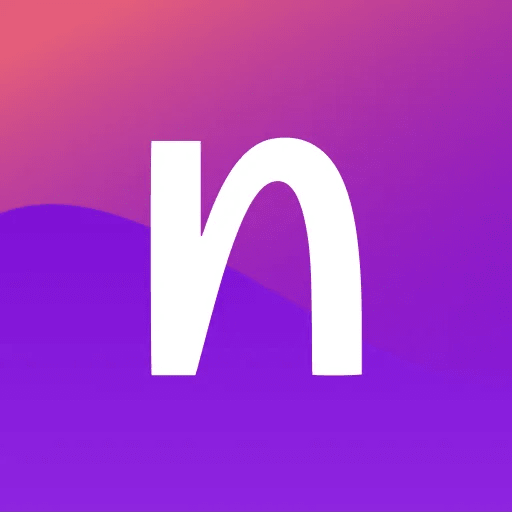7 Ways Millennials Are Reshaping the Business Travel Industry

Tejaswi Suresh

Millennials, born between 1981 and 1996, are driving significant changes in the business travel industry. Their unique preferences and tech-savvy nature influence how companies approach travel and expense management.
Here are seven ways millennials are transforming the business travel landscape:
1. Preference for Technology-Driven Solutions
Millennials have grown up with technology at their fingertips, making them more inclined to use digital tools for planning and managing their business trips. They prefer business travel mobile apps that offer seamless booking, expense tracking, and real-time updates.
In the minds of millenials, technology should simplify every aspect of business travel. From AI-powered chatbots that assist with booking changes to automated expense reporting, millennials expect their travel management tools to integrate seamlessly into their digital lives. They want the convenience of booking flights, hotels, and transportation from a single platform and the ability to sync these details with their calendars and emails.
Additionally, features such as virtual travel assistants and real-time notifications about gate changes, delays, or cancellations make the travel process smoother.
Beyond the basics, millennials look for platforms that offer advanced capabilities, such as digital wallets for expense management, loyalty program integration, and AI-driven recommendations based on past preferences.
By leveraging big data and machine learning, companies can provide a more intuitive and personalized travel experience that anticipates the needs of millennial travelers.
2. Emphasis on Work-Life Balance
For millennials, maintaining a balance between work and personal life is crucial. They seek business travel options that offer flexibility, such as extending a work trip into a leisure stay, also known as “bleisure” travel. This trend prompts companies to adopt policies accommodating extended stays and flexible travel schedules.
Integrating work and leisure travel is becoming a standard expectation among millennial employees. They appreciate the opportunity to explore new destinations without having to dip into their personal vacation time.
Companies that recognize this preference are more likely to attract and retain top talent from this generation. To support this trend, businesses are adopting flexible travel policies that allow employees to extend their trips, offering them the option to bring family members or friends along.
Travel management platforms are incorporating features that facilitate bleisure travel, such as seamless transition options from corporate to personal bookings, special rates for extended stays, and partnerships with leisure travel providers.
By supporting work-life balance through flexible travel arrangements, companies can enhance employee satisfaction, reduce burnout, and increase productivity.
3. Desire for Personalized Experiences
Millennials value personalized experiences over one-size-fits-all solutions. They expect travel management companies to offer tailored recommendations based on their preferences, such as specific hotel amenities or preferred airlines. This focus on customization enhances their overall travel experience and satisfaction.
Personalization in business travel goes beyond just booking preferences. Millennials want to feel understood and valued as individuals. This includes receiving recommendations for restaurants that cater to their dietary preferences, hotels that align with their lifestyle, and activities that match their interests.
Travel management companies can leverage data analytics to create detailed traveler profiles, allowing them to provide highly targeted suggestions.
For example, if a millennial traveler consistently prefers boutique hotels with fitness centers, the travel platform can prioritize these options in future bookings. Similarly, if a traveler often attends industry conferences, the platform can notify them of relevant events happening at their destination. This level of personalization not only enhances the travel experience but also builds loyalty and trust in the travel management service.
[Box] Meet Ava, Your Personalized Hotel Concierge
Navan’s AI-powered hotel concierge, Ava, knows your travel patterns — possibly better than you do yourself. For example, when you ask, “Ava, book me a hotel in San Francisco near company headquarters,” Ava will serve up recommendations based on your:
Loyalty program membership
Preferred style of hotel
Historically chosen amenities (gym, pool, breakfast, etc.)
Preferred room (bed size, square footage, etc.)
Ava then provides a curated list of hotels that align with the company's travel policy — crucial for the business traveler.
[/Box]
4. Focus on Cost-Efficiency
While millennials appreciate convenience, they are also cost-conscious. They prefer travel options that provide the best value for money, often comparing multiple sources before booking. Millennials are adept at using technology to find the most cost-effective travel options.
They rely on comparison tools and apps that aggregate prices from various airlines, hotels, and car rental companies to find the best deals. This price sensitivity extends to their expectations from their employers' travel management systems. They want clear visibility into travel expenses and the ability to make cost-effective choices without sacrificing quality or convenience.
Platforms like Navan support these preferences by providing tools that automatically compare prices and highlight the most economical options. They also offer features like dynamic pricing alerts, which notify travelers when a better deal becomes available.
Streamlined expense reporting further enhances cost efficiency. It allows travelers to quickly and easily submit expenses, reducing administrative burden and minimizing errors. By prioritizing cost-efficiency, companies can manage travel budgets more effectively while satisfying their millennial employees' expectations.
5. Commitment to Sustainability
Sustainability is a significant concern for millennials, influencing their travel choices. They prefer eco-friendly accommodations, direct flights to reduce carbon emissions, and other sustainable travel options, like rail travel. Companies are responding by integrating green practices into their travel policies and offering more environmentally friendly choices.
Millennials’ environmental awareness significantly shapes their travel behaviors. They look for hotels with green certifications, prefer airlines prioritizing carbon offset programs, and choose ground transportation options that minimize their carbon footprint. This commitment to sustainability drives companies to adopt greener travel practices and make eco-friendly choices a standard part of their travel policies.
Some platforms partner with sustainable travel providers, giving users access to green-certified accommodations and services. By promoting sustainable travel options, companies can not only meet the preferences of their millennial employees but also contribute to broader environmental goals.
6. Demand for Seamless Communication
Clear and constant communication is essential for millennial travelers. They expect immediate responses and support during their trips, whether through chatbots, customer service lines, or real-time notifications.
Millennials are accustomed to instant communication and expect the same level of responsiveness when traveling for business. They value platforms that provide real-time updates and easy access to customer support. This includes receiving notifications about flight changes, weather alerts, or local transportation issues and being able to quickly contact support if something goes wrong.
Navan meets these expectations by offering comprehensive communication tools within its platform. Travelers can use AI-powered chatbots for quick inquiries, access a dedicated customer support team around the clock, and receive push notifications for critical updates. This continuous flow of information helps millennial travelers feel more secure and in control, knowing that assistance is just a click away whenever needed.
7. Integration of Social and Professional Networking
Millennials often blend their social and professional lives, using business trips as opportunities to expand their networks. During their travels, they seek out industry events, local meetups, and coworking spaces. Companies recognize this trend and encourage networking opportunities as part of their travel programs.
For millennials, business travel is not just about attending meetings and conferences; it's also about making valuable connections. They leverage these trips to meet peers, mentors, and potential clients. This networking can happen in formal settings like industry conferences or informal environments like local meetups and coworking spaces.
Companies increasingly support this integration by providing resources and time for networking during business trips. They might offer access to platforms that list local events or provide memberships to global coworking spaces.
Additionally, some companies organize networking events and encourage employees to attend relevant industry gatherings while traveling. By facilitating these opportunities, businesses can enhance the value of business travel for their millennial employees, fostering professional growth and expanding their network.
Conclusion
Millennials' distinct preferences and expectations are undeniably reshaping the business travel industry. Companies can better cater to this influential generation by prioritizing technology, personalization, sustainability, and flexibility. Platforms like Navan are at the forefront of these changes, offering solutions that align with millennial travelers' evolving needs.
This content is for informational purposes only. It doesn't necessarily reflect the views of Navan and should not be construed as legal, tax, benefits, financial, accounting, or other advice. If you need specific advice for your business, please consult with an expert, as rules and regulations change regularly.
Blog
How We Built an AI Agent That Calls Hotels Like a Human
Blog
The New Rules of Travel Support: Powering Exceptional Service in the Age of AI
Blog
Introducing the Navan Business Travel Benchmark: A New Industry Benchmark for Corporate Travel Trends
Blog
How to Deploy the Navan Card Effectively at Your Company
Blog
The Ultimate Guide to Business Travel Expense Reports
Take Travel and Expense Further with Navan
Move faster, stay compliant, and save smarter.